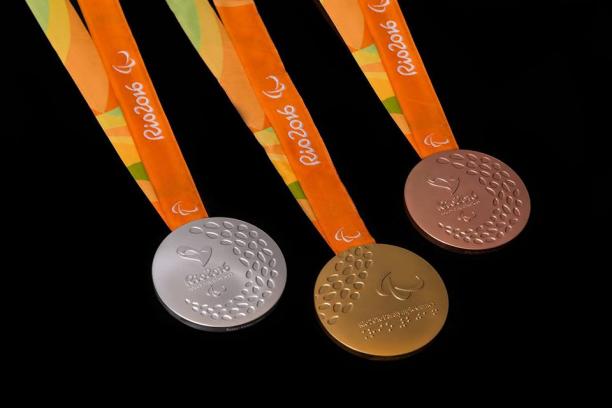Right after news broke that Yip Pin Xiu would be receiving $200,000 for winning a gold at this year's Paralympics, the discussion online was whether there was a difference between her feat and that of Joseph Schooling's, and if she should receive the same prize money as him. Schooling received $1 million in reward for his gold medal at the 2016 Rio Olympics.
But let's be clear on two things first.
First, the amount of prize money, Yip said, "Over the years, I've always had friends coming up to me and said I should be given more. But I don't make a hoo-ha about it. Because we don't do it for the money."
Second, the prize money is administered differently by separate set-ups. For the Olympians, the cash reward, known as the Multi-Million Dollar Awards Programme (MAP) is administered by the Singapore National Olympic Council (SNOC). For the Paralympians, the cash reward, known as Athlete's Achievement Award (AAA), is administered by the Singapore National Paralympic Council (SNPC).
Both comes from the Tote Board, a statutory board under the Ministry of Finance, which "earns" money via takings from Singapore Pools and Singapore Turf Club; and the collection of casino entry levy from the two integrated resorts in Singapore. The money is then distributed to different charities and needy groups.
Different competition, different rewards?
In 2008, then-NMP Eunice Olsen asked in Parliament why is the "reward for the Singapore Paralympians not on par with the able athletes."
Then-Senior Parliamentary Secretary for Commmunity, Youth and Sports Teo Ser Luck responded, saying that having been to both events, "Paralympians competition is intense as well. I think they have overcome the odds, I would say a lot more odds, just to get there and to be able to compete. So we accord them with the respect and we accord them, in a way, the type of reward that they should be accorded with."
To explain the differences, he said that the Paralympics differed in the level and scale of competition compared to the Olympics. He explain that the Olympics "is a free world competition. Paralympians can join Olympics. Olympians cannot join Paralympics." He added that "the base of competition for Paralympics is smaller and is segmentised because Paralympics is based on the disabilities which are classified differently."
Is the line of reasoning justified?
From the perspective of a practical policy-maker, this justification is sound. Imagine if a Paralympic event was so niche that there were only a handful of competitors. It would mean the chances of getting a medal is higher.
In a world of scarce resources, the reward money from the Tote Board could well mean that every extra dollar given to medal winners is a dollar taken away from some other charity or bursary recipient. Unfortunately, such explanations and its implications would not sound very nice at all when articulated by a politician who isn't Lee Kuan Yew.
On the flip side, the justification that Paralympics is a different level of competition falls flat when you hear of news that four Paralympians ran faster in their 1500m race than the gold medal winner of the 2016 Olympics Matt Centrowitz. Imagine if the Paralympian who ran the 1500m race was Singaporean, who did better than Centrowitz, receiving less than the $1 million reserved for an Olympic gold. Receiving a smaller prize because you are visually-handicapped? Not very good PR for a country.
People, unfortunately, do not think as nuanced as policy-makers
Regular folk can only see what is presented to them -- two swimmers who have become the very best at swimming at the international level, and are rewarded differently.
Perhaps we can consider why we are giving monetary rewards for medals in the first place.
The MAP administered by SNOC cited the "enormous financial investment over many years" needed to train athletes at the elite level and devised the incentive programme as a way to reward medal winning athletes. The AAA administered by the SNPC are given out to paralympians "in recognition of the huge commitment, discipline and passion to training and competing at the highest level – the desire to go that extra distance beyond self".
Do Para-athletes require less financial investment? Is there a difference between the commitment, discipline and passion of Para-athletes when compared to the Olympic athletes? Should pragmatic considerations really be a justification for the level of rewards Paralympians receive?
Perhaps we can observe how our neighbour justified giving Olympic and Paralympic athletes the same rewards. Previously, Malaysian Paralympians were given only 30 per cent of the rewards given to Olympians (RM$300,000 for gold vs RM$1 million).
In pushing for equalising rewards, Malaysian Sports Minister Khairy Jamaluddin puts it elegantly,
"I would not know how to feel 30 per cent proud of them. I only feel 100 per cent proud of our para heroes. They have shown us that yes, they are not ordinary. They are extraordinary."
If it is an issue of finite financial resources from the Tote Board, Singaporeans who would really like to see Paralympians rewarded at the same level as Olympians could place more bets with Singapore Pools.
Your decision is now both self-interested (Toto top prize: $2.2 million this Thursday) and public-interested.
Top image from Paralympics
If you like what you read, follow us on Facebook and Twitter to get the latest updates.
If you like what you read, follow us on Facebook, Instagram, Twitter and Telegram to get the latest updates.
